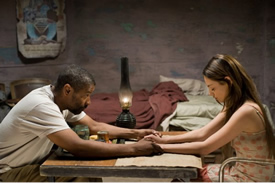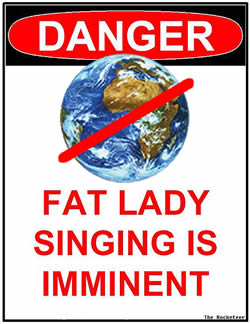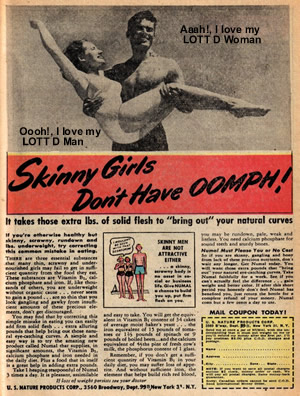 ...after seeing it, I realized that I was faced with an interesting dilemma...the movie was not very good. The
acting, for the most part, was uninspired, with the exception of the
female lead, who was awful. The editing and camerawork was sub-par, to
the point of seriously detracting from the viewing experience. The
script was amateur and forced. At just under an hour in length, it was
still difficult to get through. Even the opening and closing theme
music seemed entirely inappropriate to the material.
...after seeing it, I realized that I was faced with an interesting dilemma...the movie was not very good. The
acting, for the most part, was uninspired, with the exception of the
female lead, who was awful. The editing and camerawork was sub-par, to
the point of seriously detracting from the viewing experience. The
script was amateur and forced. At just under an hour in length, it was
still difficult to get through. Even the opening and closing theme
music seemed entirely inappropriate to the material.
However, in
researching the film, both before and after viewing, virtually all the
reviews and feedback I found regarding it were resoundingly positive.
And this has been a situation echoed many times since I began the
Vault. This time, I was tired of saying nothing about it. (The Vault of Horror: The Emperor Has No Clothes; or Payola In the Age Of Blogging)
B-Sol at The Vault of Horror, in writing his review for the movie Serial: Amoral Uprising, has touched upon the dirty little black book too many horror movie reviewers carry around with them. Scan the pages of that book and you'll see notes on how to avoid offending would-be directors, actors, scriptwriters, and anyone connected with a bad movie; a movie showing little creative energy or talent in its production--a category in which many independent movies all too often fall into. Now I have not seen Serial: Amoral Uprising. I cannot say if it's good or bad or middling or whether it's worth watching or not. This is not the point, I think, B-Sol is trying to make (although he clearly did not like the movie). What surprised him--maybe not surprise, let's say irked him--is how a movie, which measured badly on many critical points, could receive only glowing reviews; not one, but many. How could that be? The answers are in that dirty little black book.
When I first started blogging I eagerly sought after screeners. I wanted to be a movie critic and I believed screeners would be a great way to hone my critical skills. After the second year of receiving them--and I admit I actively solicited for them--I found myself in a predicament: I realized most of them were of movies done by amateurs who had not paid their dues, or worse,
didn't realize they needed to. Basic camerawork, basic scene setups, basic storytelling, basic acting, and all those basic craft things taught in school--or by hard knocks--to produce a watchable movie were ignored outright, or worse, trifled with. I began to feel insulted. I also felt embarrassed, even intimidated, because I had asked for many of them and I felt compelled to not write a bad review. I felt beholden to the director or marketing agent who sent it. This was not, and is not, a good place to be put in.
I'm not saying all the screeners I received were bad. I've had good and rewarding indie movies come my way, and through them I've developed relationships with directors, actors, and writers who've helped me grow as a blogger and critic. Some were skilled people who knew their way around a camera, and others who, with a little more budget, a little more practice, and a little more experience would improve their craft; their movie showed that.
But like B-Sol, many times when I'd research a movie's reviews before accepting or soliciting for it I'd find raves where hisses should have been heard. No balanced reviews, just kudos for clearly what should have been recognized as poor filmmaking. Of course I stopped reading those reviewers, some of whom were connected to commercial horror websites. Either their critical acumen was questionable, or they simple didn't want to hurt someone's feelings, or they didn't want to be shut out from receiving more screeners. That last one can be found in that dirty little black book's table of contents under How to Keep Getting Screeners By Not Biting the Hand That Gives.
It's a
situation every movie blogger, and especially horror blogger, eventually faces, and one which test's
your professionalism. Once you've compromised by writing a misleading review so no feeling's are hurt or because you're afraid you won't get those freebies anymore--and I've walked that tightrope--why should any reader value your opinion? Worse still, you are letting down those who most need the feedback from your honest appraisal: the directors, writers, actors, and production people who need these reality checks to help them improve their craft.
Roger Ebert provides some very good guidelines for dealing with situations like these and how to review movies while keeping your integrity intact. I recommend reading his little rule book for any
movie blogger who takes his or her writing and reputation seriously.
 Many fans of horror, amateur and professional alike, have devoted themselves to blogging about the thrills, chills, and no-frills side of the genre as seen in cinema and print. In this ongoing series that highlights the writers behind the blogs, we meet the unique personalities and talents that make the online horror scene so engaging. Up close and personal.
Many fans of horror, amateur and professional alike, have devoted themselves to blogging about the thrills, chills, and no-frills side of the genre as seen in cinema and print. In this ongoing series that highlights the writers behind the blogs, we meet the unique personalities and talents that make the online horror scene so engaging. Up close and personal.



















